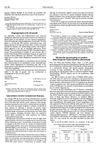 1 citations,
October 1990 in “The Lancet”
1 citations,
October 1990 in “The Lancet” Using minoxidil for hair growth may cause skin lesions in some people, and taking breaks from nitrate patches for angina might worsen symptoms.
 March 2024 in “Journal of pharmacopuncture”
March 2024 in “Journal of pharmacopuncture” Hominis Placenta Pharmacopunture helped regrow hair in a patient with stress-induced hair loss.
 January 2024 in “Frontiers in immunology”
January 2024 in “Frontiers in immunology” Histone modification is key in treating chronic inflammatory skin diseases.
 March 2018 in “Suez Canal University Medical Journal”
March 2018 in “Suez Canal University Medical Journal” New drugs targeting the JAK-STAT pathway show promise for treating inflammatory skin diseases.
 September 2004 in “Experimental dermatology”
September 2004 in “Experimental dermatology” Melatonin directly affects mouse hair follicles and may influence hair growth.
 271 citations,
September 2008 in “Nutrition reviews”
271 citations,
September 2008 in “Nutrition reviews” Vitamin D receptor interacts with certain dietary components to help prevent diseases and regulate hair growth.
 205 citations,
July 2009 in “Journal of Dermatological Science”
205 citations,
July 2009 in “Journal of Dermatological Science” Male and female skin differ in many ways, which could lead to gender-specific skin treatments.
 101 citations,
January 1997 in “Journal of Investigative Dermatology Symposium Proceedings”
101 citations,
January 1997 in “Journal of Investigative Dermatology Symposium Proceedings” Nerves and chemicals in the body can affect hair growth and loss.
 73 citations,
January 2013 in “European journal of dermatology/EJD. European journal of dermatology”
73 citations,
January 2013 in “European journal of dermatology/EJD. European journal of dermatology” Antioxidants may help fight oxidative stress linked to autoimmune skin diseases.
 63 citations,
March 2000 in “Annals of clinical psychiatry”
63 citations,
March 2000 in “Annals of clinical psychiatry” Some psychiatric medications can cause hair loss, but it usually grows back after adjusting the medication.
 52 citations,
October 2010 in “Antiviral Therapy”
52 citations,
October 2010 in “Antiviral Therapy” New treatments for Hepatitis C show promise but need more research to confirm their safety and effectiveness for clinical use.
 41 citations,
March 2010 in “Psychology Research and Behavior Management”
41 citations,
March 2010 in “Psychology Research and Behavior Management” Using psychological treatments can help manage skin conditions along with regular medical care.
 30 citations,
December 2001 in “Experimental dermatology”
30 citations,
December 2001 in “Experimental dermatology” Gonadal hormones significantly affect the severity of alopecia areata in mice.
 21 citations,
February 2012 in “Journal of the European Academy of Dermatology and Venereology”
21 citations,
February 2012 in “Journal of the European Academy of Dermatology and Venereology” Late-onset alopecia areata in Taiwanese patients is more common in women, usually starts at age 57, often involves less than 10% hair loss, and may have a minimal link to thyroid issues.
 13 citations,
October 2012 in “InTech eBooks”
13 citations,
October 2012 in “InTech eBooks” Nanocarriers could improve how drugs are delivered through the skin but require more research to overcome challenges and ensure safety.
 13 citations,
July 2004 in “Skinmed”
13 citations,
July 2004 in “Skinmed” Common types of non-scarring hair loss have various causes and treatments, but more effective solutions are needed.
 12 citations,
January 2016 in “Journal of Clinical and Investigative Dermatology”
12 citations,
January 2016 in “Journal of Clinical and Investigative Dermatology” Low vitamin D levels are common in people with Alopecia Areata.
 5 citations,
May 2023 in “Frontiers in immunology”
5 citations,
May 2023 in “Frontiers in immunology” Environmental factors like diet and vitamin levels, especially Vitamin D, can affect autoimmune diseases differently, with lifestyle changes potentially improving outcomes.
 3 citations,
January 2023 in “Dermatology Practical & Conceptual”
3 citations,
January 2023 in “Dermatology Practical & Conceptual” IMA and IMA/albumin levels don't predict alopecia areata severity.
 2 citations,
October 2021 in “Egyptian Journal of Chemistry”
2 citations,
October 2021 in “Egyptian Journal of Chemistry” Iron nanoparticles made from pumpkin extract effectively treated burns and promoted healing in mice.
 2 citations,
May 2018 in “Expert opinion on orphan drugs”
2 citations,
May 2018 in “Expert opinion on orphan drugs” Newborn screening and gene therapy are expected to improve outcomes for Omenn syndrome patients.
 2 citations,
March 2021 in “Carpathian Journal of Food Science and Technology”
2 citations,
March 2021 in “Carpathian Journal of Food Science and Technology” Caraway, Chinese chives, and cassia may improve health and prevent diseases due to their nutrients and medicinal properties.
 1 citations,
October 2010 in “Series in cosmetic and laser therapy”
1 citations,
October 2010 in “Series in cosmetic and laser therapy” Mesotherapy is a minimally invasive treatment with potential benefits and risks, requiring standardized practices and further investigation.
 1 citations,
April 2010 in “Expert Review of Dermatology”
1 citations,
April 2010 in “Expert Review of Dermatology” The document concludes that early diagnosis and treatment are crucial for managing rare hair loss disorders and that more research is needed to improve treatment strategies.
 February 2024 in “PloS one”
February 2024 in “PloS one” Tofacitinib and adalimumab are promising treatments for cicatricial alopecia with few side effects.
 April 2021 in “Bioscientia Medicina Journal of Biomedicine and Translational Research”
April 2021 in “Bioscientia Medicina Journal of Biomedicine and Translational Research” Hydroxychloroquine may help COVID-19 patients with lupus.
 April 2021 in “Bioscientia Medicina Journal of Biomedicine and Translational Research”
April 2021 in “Bioscientia Medicina Journal of Biomedicine and Translational Research” Patients with lupus nephritis and COVID-19 can improve with proper treatment.
 February 2020 in “Our Dermatology Online”
February 2020 in “Our Dermatology Online” A synthetic drug and a South American herb may help treat alopecia areata in Chinese men.
 January 2017 in “Archives of clinical and biomedical research”
January 2017 in “Archives of clinical and biomedical research” Enhancing melanin's energy generation may help treat alopecia areata.
 September 2014 in “Journal der Deutschen Dermatologischen Gesellschaft”
September 2014 in “Journal der Deutschen Dermatologischen Gesellschaft” Diabetes can cause a variety of skin disorders, some of which may signal more serious health issues.






























